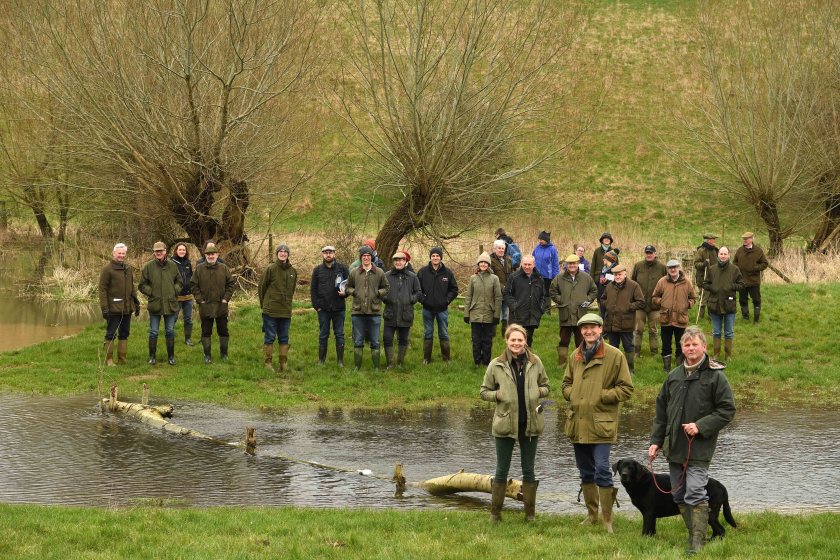Cotswold farmer cluster chosen to pilot Landscape Recovery scheme

The North East Cotswold Farmer Cluster is one group which has been selected to trial and test the government's post-Brexit Landscape Recovery scheme.
The nationwide scheme aims to restore England’s streams and rivers, protect threatened native species, improve natural habitats and adapt to climate change.
The North East Cotswold Farmer Cluster, which represents 44 farmers and landowners, including the Blenheim Estate, has been awarded £500,000 to pilot it as part of Defra's new Environmental Land Management (ELM).
In total, the NECFC covers more than 23,000ha of the River Evenlode catchment area, encompassing many small farms as well as larger landholdings.
Working together, their aim is to design, create and restore 3,271 hectares of interconnected habitat along the valley.
The ambitious plan will include the partial rewilding of 1,000ha of floodplain, the creation of 150ha of lakes, ponds and wetland habitats as well as 800ha of woodland habitat restoration, planting and natural regeneration.
Tim Coates, Sustainable Farming Incentive (SFI) pilot farmer, and NECFC Treasurer, said: “It is fantastic to have successfully brought together farmers across three catchments to form an ambitious plan to restore the rivers of our busy part of central lowland England.
“It’s also crucial to have the project led by farmers and landowners who recognise the need for transitioning to regenerative agriculture that works in harmony with nature to ensure the biosecurity of our food production into the future."
Following two years of project development, the implementation period will run for a minimum of 20 years.
“This long term, large scale, land use change is unique,” explained Matt Izod founder of the NECFC CIC, who farms about 230ha of mostly arable.
“However, our farmers have not lost sight of the need to produce food, and much of this habitat creation and ecological recovery will be intertwined within the farming system."
The Evenlode Valley includes the pressures of highly productive agriculture and the built environment, alongside the World Heritage site at Blenheim and many statutory designated sites for species and habitats.
The project will demonstrate how the landscape restoration of nature can go hand-in-hand with a real-world scenario.
Mr Izod added: “Many of our group have already been creating wildlife habitats or integrating wildlife-friendly practices into their land management for decades.
“However, the galvanising of all 45 farms into an ambitious, contiguous project will be more impactful than the sum of individual projects in isolation."
The scheme is one of 22 being supported by government funding across England.








